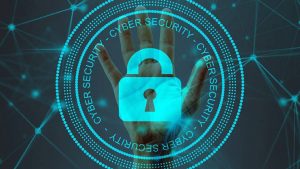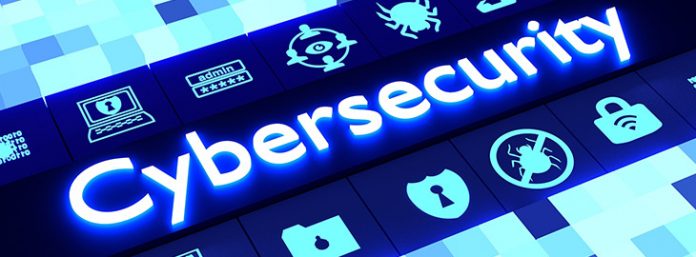A cyberattack on a user’s personal information is extremely frightening to many people because of the widespread usage of technology nowadays. There are several variations between cloud security and cyber security, despite the fact that they seem similar. The debate on cloud computing vs cyber security is quite prevalent these days. If you are unaware or have doubts concerning the differences between the two, don’t worry this article will clear your all queries.
When it comes to cyber security, how does it vary from cloud security? Cloud security is distinct from cyber security, in that it exclusively focuses on safeguarding cloud computing environments, whereas cyber security is concerned with securing all information technology domains. As part of its mission to protect the many IT domains, cyber security includes cloud security as part of its scope.

There are a lot of concerns regarding cloud computing vs cyber security, but this article has come with 7 major differences between the two:-
- The difference in the definition of cyber security and cloud computing: – Before entering into an aspect of cloud computing vs cyber security, we need to analyze the definitions of both. “Cyber security” is defined by the US Department of Homeland Security as “the art of protecting networks, devices, and data from unauthorized access or criminal use and the practice of ensuring confidentiality, integrity, and availability of information”. Cyber security is distinct from cloud security, in that it requires the individual device owner to take precautions to protect their personal information.
As per McAfee, cloud security is defined as “the procedures and technology that secure cloud computing environments against both external and insider cyber security threats”.
When it comes to security and the debate on cloud computing v cyber security, the fundamental distinction between cloud security and cyber security is that cloud security ensures that data stored in the cloud is not accessible by unauthorized servers.
- Security of personal information and its maintenance: – A large number of users will utilize the cloud to expand the storage capacity of their mobile devices. Then then, many individuals are concerned about the safety of their old images. Traffic that attempts to access data in the cloud is filtered away by the cloud.
Instead of traveling via other servers that may gather the information of its customers; the traffic is sent directly to the cloud. The traffic is filtered out by allowing authorized users to access information while preventing unauthorized traffic.
Security in cyberspace is handled differently and this very much answers the debate on cloud computing v cyber security. It entails consumers taking action to safeguard their own private information. In order to preserve cyber security, there are several ways:
- Keep an eye out for dubious links in e-mails. It is common for students to be victims of hackers when they communicate with their teachers. Personal email accounts are frequently inundated with emails that appear to be from well-known organizations, like schools but are really scams. Viruses or requests for personal information can be found on these URLs. That’s why they must start thinking about their cyber security.
- Using complex passwords and changing them frequently is a smart security practice. If malware has access to your computer, it can steal your credentials. Keeping your passwords fresh might help keep your data safe from prying eyes.
- Setup of a two-step verification process. Logging into an account each time with a unique code might be tedious, but enabling two-factor authorization provides an extra layer of protection. Additionally, if someone else tries to get into my account, the user will receive an SMS message.
- Liability: – On the scale of liability, cloud computing vs cyber security is a tough comparison. In order to secure their devices against viruses that might steal personal information, consumers have to take precautionary measures. Because of this, users’ sensitive data will be less susceptible to being stolen and sold on the dark web.
Theft or leaking of personal data is prevented by cloud service providers via technological protection. Cloud computing services have become increasingly popular. For the cloud, hackers have developed new techniques that allow them to access it. Businesses have a lot of responsibility if their customers’ cloud data is stolen and sold, thus they need to keep their cloud users’ data safe and private.
Security responsibility: – With cyber security, it is usually the device owner’s responsibility to maintain the safety of private personal information. You are responsible for the monitoring of your information. It is also the device owner’s responsibility to actively maintain cyber security to protect their data from hackers.
Cloud security is monitored by the vendors providing the software instead of the individual who owns the device. API (Application Programming Interface) also causes it to be more automated. Since it is automated, the responsibility of maintaining the security of users’ information is less reliant on humans, so human error is less likely to occur. This means that comparing cloud computing v cyber security, cloud computing secures your data more.
Detection of Security Threats: – Antivirus software is traditionally used in cyber security to identify and eradicate threats. Debates on both sides about cloud computing v cyber security should keep in mind that, the issue with antivirus software is that it tends to lag behind new threats and need frequent updates to stay current with hackers’ techniques. Using traditional cyber security approaches puts people’s gadgets in danger.
Signatures serve as indicators of potential harm. Traditional cyber security software has latency, while cloud security does not have one since attacks are identified by signatures in the cloud. Threats may be automatically detected and identified using artificial intelligence. It doesn’t need constant updating like other ways. In order to be better secured from cyber-attacks, artificial intelligence monitors the tactics used by hackers in real time.
Back of up data: – Traditional cyber security backups may be preferable since you know who has access to your data, but these backups may be both time-consuming and expensive to implement. Maintaining a regular backup routine will be your responsibility, or that of an IT professional. In order to save these backups, additional storage space will need to be acquired. If this doesn’t happen, data might be lost forever. Frequent back-ups are therefore critical. Persons who are worried about their data might ask which one is better cloud computing vs cyber security.
Cloud security backups are distinct from regular cyber security backups in that they are automated and not manual. Backups are not performed manually by an IT professional, but rather by a third-party provider. As a result, cloud security backups are far less expensive than traditional cyber security backups. Backups would no longer necessitate the purchase of additional computer storage. Additional storage can be purchased with iCloud.
Storage of Data: – Traditional cyber security measures are labor-intensive and expensive, as you’ve certainly seen by now. These techniques of data storage significantly rely on closeness. People who employ these strategies are more likely to be happy since they have more control over how their data is structured. Due to the extreme involvement of humans, there is a probability that they will mess up the security of data storage. As a result, there is a greater potential for data loss. People also prefer these approaches since they can control who has access to their personal information.
Data isn’t kept locally when you use cloud security. With less ease of access, there’s less chance that data will be compromised or tampered with in any way. In order to guarantee the safety of your data, several cloud service providers have highly sophisticated and secure data centers. They also make sure that your data is safe and secure from hackers. Cloud security, in contrast to cyber security, entails sharing your data with other service providers. This might be viewed as a major security issue in the cloud.
Read Also: Top Cloud Security Companies in 2024
Final Thoughts
After taking into account various aspects, we are of the opinion that cloud computing is way more than cyber security. It provides better services and is more secure in comparison to cyber security. If you’re a person who is concerned about the security, backup, storage, etc of your data, cloud computing is definitely your solution.







